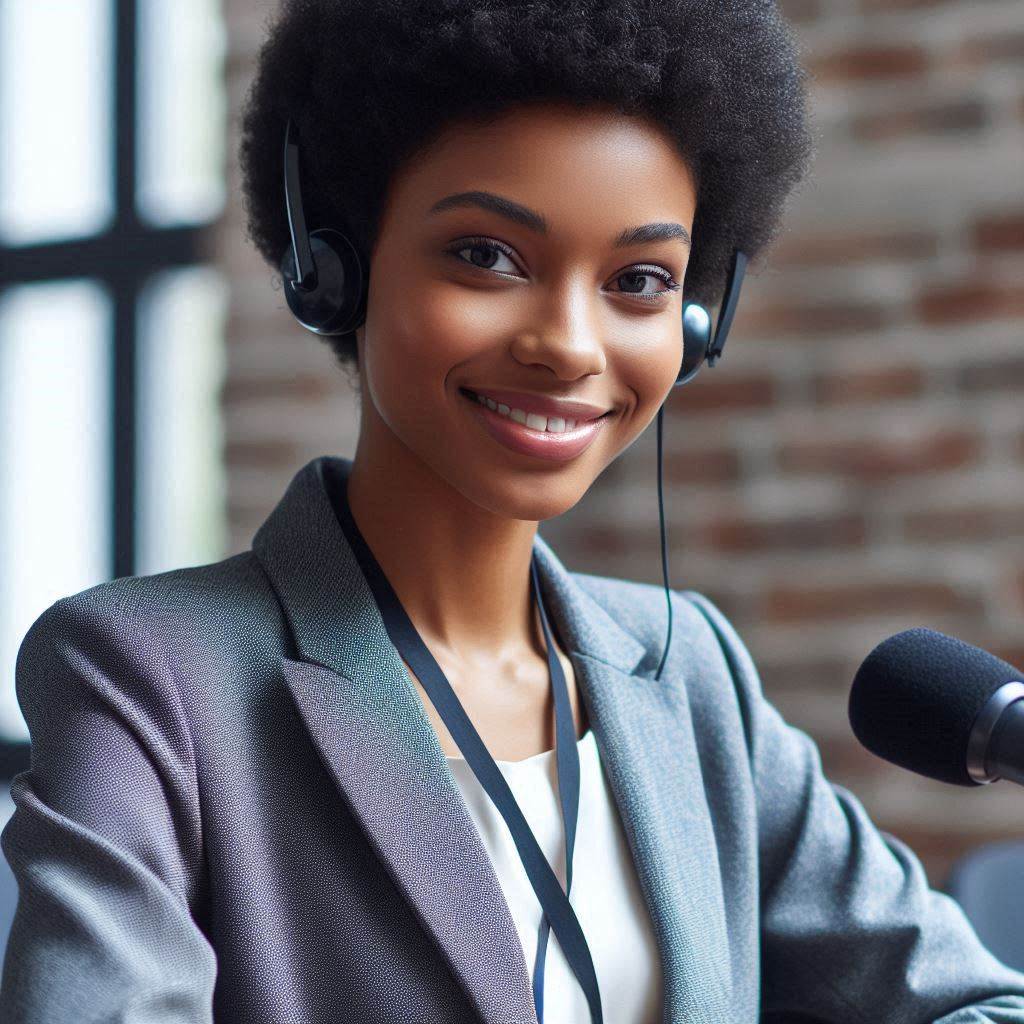Introduction
The jury consulting profession plays a pivotal role in the legal field, offering invaluable insights that help shape trial strategies and outcomes.
Jury consultants, or trial consultants, use their expertise in psychology, sociology, and communication to analyze potential jurors, assist in jury selection, and provide trial strategy recommendations.
Their work is crucial for ensuring that legal arguments are effectively presented and that juries are more likely to render fair and informed verdicts.
As the legal landscape evolves, so too does the field of jury consulting.
Advancements in technology and shifts in societal attitudes are shaping the future of this profession.
One significant trend is the integration of data analytics and artificial intelligence (AI).
These tools enable jury consultants to analyze large volumes of data on juror behavior and preferences, leading to more precise predictions and tailored strategies.
The use of AI can enhance the accuracy of jury profiles and streamline the selection process.
Moreover, there is a growing emphasis on cultural competence.
As juries become increasingly diverse, understanding and addressing cultural differences becomes essential.
Future jury consultants will need to be adept at navigating these complexities to ensure equitable and effective trial outcomes.
Additionally, the rise of remote technology and virtual courtrooms presents both opportunities and challenges.
Jury consultants must adapt to these changes by mastering virtual jury selection techniques and ensuring that their strategies are effective in an online environment.
In fact, the future of the jury consulting profession is marked by technological advancements and an evolving understanding of cultural dynamics.
Evolution of jury consulting profession
Historical background of jury consulting
The jury consulting profession has evolved significantly since its inception in the late 20th century.
Initially, jury consultants focused primarily on helping attorneys understand jury behavior through traditional methods such as mock trials and focus groups.
Early practitioners relied heavily on intuition and experience to gauge potential jurors’ biases and predispositions.
The field began to gain prominence in the 1970s when high-profile trials, such as those of Watergate figures, highlighted the need for expert assistance in jury selection.
As the profession matured, consultants began incorporating more structured approaches, including psychological profiling and statistical analysis, to better predict juror behavior and attitudes.
Advances in technology and data analysis
In recent years, the evolution of technology has profoundly impacted jury consulting.
Transform Your Career Today
Unlock a personalized career strategy that drives real results. Get tailored advice and a roadmap designed just for you.
Start NowAdvances in data analysis allow consultants to process vast amounts of information quickly and accurately.
For example, sophisticated software now enables the analysis of demographic and psychographic data to identify trends and patterns that were previously impossible to discern.
This data-driven approach enhances the precision of jury profiles and the effectiveness of trial strategies.
Impact of social media on jury selection
Social media has also revolutionized jury consulting.
Platforms like Facebook, Twitter, and Instagram provide a wealth of information about potential jurors’ interests, opinions, and affiliations.
Consultants can now monitor juror profiles and online activity to gain insights into their biases and preferences.
This real-time data collection allows for more informed and strategic jury selection, although it raises ethical considerations about privacy and the potential for manipulation.
Looking ahead, the jury consulting profession will likely continue to evolve with advancements in technology and the ever-increasing influence of social media.
As consultants adapt to these changes, they will play an even more crucial role in shaping trial outcomes and ensuring fair justice in an increasingly complex legal landscape.
Read: Career Growth Opportunities in Jury Consulting
Changing dynamics in the legal system
As the legal system evolves, so too does the field of jury consulting.
The future of this profession is shaped by several dynamic changes, including the shift towards virtual trials, the impact of diversity and inclusion initiatives, and the legal challenges posed by evolving societal norms.
Shift towards virtual trials and hearings
One of the most significant shifts is the move towards virtual trials and hearings.
The COVID-19 pandemic accelerated the adoption of remote court proceedings, which has become a staple of the legal landscape.
Jury consultants now must navigate the complexities of virtual platforms, ensuring that jury selection and trial strategies are adapted to this new environment.
This transition requires consultants to develop new tools and techniques to assess jurors’ reactions and interactions in a digital setting.
Influence of diversity and inclusion initiatives on jury selection
Diversity and inclusion initiatives are also transforming the jury consulting field.
Courts and legal teams are increasingly focused on creating diverse juries that reflect a broad spectrum of societal perspectives.
Jury consultants must now integrate strategies to identify and address biases, ensuring fair representation across all demographic groups.
This shift not only influences jury selection processes but also emphasizes the importance of cultural competence in consulting practices.
Transform Your Career Today
Unlock a personalized career strategy that drives real results. Get tailored advice and a roadmap designed just for you.
Start NowLegal challenges posed by evolving societal norms
Additionally, evolving societal norms present legal challenges that impact jury consulting.
Issues such as social justice, gender equality, and climate change are shaping public opinion and, consequently, jury perceptions.
Consultants must stay abreast of these changing norms to provide insights that help legal teams address contemporary concerns effectively.
Understanding these societal shifts is crucial for developing strategies that resonate with jurors and align with current legal and ethical standards.
In short, the future of jury consulting is defined by technological advancements, a commitment to diversity and inclusion, and the need to navigate evolving societal norms.
Adapting to these changes will be essential for consultants aiming to stay relevant and effective in an ever-changing legal landscape.
Read: Legal Regulations Governing Jury Consultants in the US
Emerging trends in jury consulting
As the legal landscape evolves, so does the role of jury consultants, who are increasingly leveraging cutting-edge technologies and methodologies to enhance trial strategies.
The future of jury consulting is poised for transformative changes driven by emerging trends.
Artificial Intelligence and Machine Learning
Artificial intelligence (AI) and machine learning are becoming indispensable tools in predicting juror behavior.
By analyzing vast datasets, AI systems can identify patterns and trends that might elude human analysts.
These technologies enable jury consultants to predict how jurors might respond to various aspects of a case, from evidence presentation to arguments made by attorneys.
This predictive capability allows for more tailored and effective trial strategies, ultimately aiming to improve case outcomes.
Psychological Profiling and Behavior Analysis
Another significant trend is the deepening focus on psychological profiling and behavior analysis.
Modern jury consultants are increasingly employing sophisticated psychological assessments to understand jurors’ biases, attitudes, and predispositions.
This nuanced approach helps in selecting a jury that aligns more favorably with the case’s objectives.
By integrating psychological insights, consultants can craft strategies that address potential juror biases and improve overall case presentation.
Incorporation of Neuroscientific Research
Incorporating neuroscientific research into trial strategy represents a groundbreaking development in jury consulting.
Understanding how the brain processes information and responds to stimuli can offer invaluable insights into juror decision-making processes.
Techniques such as neuroimaging and cognitive studies are being utilized to gauge how jurors’ brains react to various trial elements.
Transform Your Career Today
Unlock a personalized career strategy that drives real results. Get tailored advice and a roadmap designed just for you.
Start NowThis information can guide attorneys in framing their arguments and presenting evidence in ways that align with cognitive and emotional responses.
These emerging trends signal a shift towards a more data-driven, scientifically-informed approach in jury consulting.
By harnessing AI, psychological profiling, and neuroscientific research, consultants are not only refining their methodologies but also paving the way for more effective and strategic trial outcomes.
The future of jury consulting promises a blend of technology and psychology, offering a new frontier in legal strategy.
Read: Networking Tips for Aspiring Jury Consultants

Ethical considerations in jury consulting
Ensuring fairness and impartiality in jury selection
As jury consulting evolves, ethical considerations become increasingly paramount.
Ensuring fairness and impartiality in jury selection is fundamental. Jury consultants must navigate the delicate balance between identifying jurors who will objectively assess the case and avoiding strategies that might unfairly sway the jury.
Future jury consultants will need to enhance their practices by incorporating advanced analytics while upholding principles of impartiality.
This means developing sophisticated tools for juror assessment that avoid bias and promote a fair trial.
Balancing attorney-client privilege with ethical guidelines
Balancing attorney-client privilege with ethical guidelines presents another significant challenge.
Consultants often find themselves privy to sensitive information that could impact their recommendations.
Future jury consultants will need to navigate this delicate terrain by developing clear protocols for managing confidential information while ensuring that their advice remains within ethical boundaries.
This involves rigorous training and adherence to established ethical standards to avoid conflicts of interest and maintain professional integrity.
Transparency in communication with legal teams and clients
Transparency in communication with legal teams and clients is essential for maintaining trust and credibility.
As the profession grows, jury consultants must foster an environment of openness where their methods and findings are communicated clearly and honestly.
This transparency helps ensure that all parties understand the basis of recommendations and reduces the risk of misunderstandings or unethical practices.
Future consultants will need to champion open dialogue and document their processes meticulously to uphold ethical standards and reinforce the integrity of their work.
In summary, the future of jury consulting will hinge on the profession’s ability to uphold fairness and impartiality, balance confidentiality with ethical guidelines, and maintain transparency with clients and legal teams.
By addressing these challenges proactively, jury consultants can continue to play a vital role in the legal system while upholding the highest ethical standards.
Read: Ethical Considerations in the Jury Consulting Field
Transform Your Career Today
Unlock a personalized career strategy that drives real results. Get tailored advice and a roadmap designed just for you.
Start NowImpact of Covid-19 on the profession
Transition to remote jury consulting services
The COVID-19 pandemic has significantly reshaped many professional fields, and jury consulting is no exception.
The transition to remote services has been one of the most profound changes in the field, as traditional in-person consultations and courtroom preparations gave way to virtual alternatives.
Challenges of conducting focus groups and mock trials virtually
One of the major shifts has been the adaptation to remote jury consulting services.
Consultants have quickly embraced video conferencing tools to conduct interviews, focus groups, and mock trials.
While this shift has allowed for continuity in services, it has introduced new challenges.
For example, conducting focus groups and mock trials virtually can hinder the natural interaction and group dynamics that occur in physical settings.
The lack of physical presence can affect how participants respond, potentially impacting the reliability of the data collected.
Opportunities for innovation and adaptation in the post-pandemic landscape
Despite these challenges, the pandemic has also opened doors for innovation and adaptation.
Remote technology has made jury consulting more accessible to clients across geographical boundaries, allowing consultants to work with a broader range of clients and jurors.
Additionally, the need to adjust methodologies has led to the development of new tools and techniques for virtual consulting, enhancing the profession’s ability to adapt to changing circumstances.
As we move into the post-pandemic landscape, jury consulting is poised for transformation.
The experiences and adaptations made during the pandemic are likely to continue influencing the field, encouraging ongoing innovation.
The integration of advanced virtual tools and methods will not only address current challenges but also create opportunities for more efficient and effective jury consulting practices in the future.
The COVID-19 pandemic posed significant obstacles for the jury consulting profession but also drove positive change and growth.
This crisis has set the stage for a more dynamic and resilient future.
Professional development and training in jury consulting
Importance of continuing education and skill development
As the field of jury consulting evolves, professional development and training remain crucial for maintaining relevance and effectiveness.
The importance of continuing education and skill development cannot be overstated.
As legal strategies, courtroom dynamics, and societal attitudes shift, jury consultants must stay abreast of these changes to provide valuable insights and recommendations.
Engaging in ongoing training ensures that consultants are equipped with the latest tools, methodologies, and best practices to enhance their effectiveness.
Certification programs and industry standards for jury consultants
Certification programs and industry standards play a significant role in this evolving field.
Transform Your Career Today
Unlock a personalized career strategy that drives real results. Get tailored advice and a roadmap designed just for you.
Start NowCertifications from recognized bodies not only validate a consultant’s expertise but also demonstrate a commitment to maintaining high professional standards.
These certifications often require rigorous testing and adherence to ethical guidelines, which helps build credibility and trust with clients and the legal community.
As the profession grows, there may be an increasing emphasis on formalized certifications to standardize practices and ensure quality.
Collaboration with legal professionals and academia for knowledge sharing
Collaboration with legal professionals and academia is also essential for knowledge sharing and advancement in jury consulting.
By working closely with legal experts, jury consultants can gain insights into emerging legal trends and issues that may affect jury dynamics.
Academic partnerships facilitate research and develop new methodologies, ensuring consultants access the latest studies and theoretical advancements.
This collaborative approach fosters an environment of continuous learning and improvement, benefiting both the consultants and their clients.
The future of jury consulting depends on continuous professional development and meeting certification standards.
Consultants must collaborate with the legal field and academic institutions.
Embracing these elements will ensure that jury consultants remain adept at navigating the complexities of modern trials and contribute effectively to the justice system.
Conclusion
As we conclude this discussion on the future of the jury consulting profession, it is important to recap the key points that have been highlighted.
Adapting to changes in the legal industry is crucial for the future of jury consulting.
The landscape of trials is constantly evolving, and consultants must stay current to remain relevant.
Jury consultants are encouraged to stay informed and proactive in their profession.
By continuously learning and adapting to new trends, they can better serve their clients and contribute to the success of their cases.
It is evident that the jury consulting profession is facing significant changes and challenges in the coming years.
However, by embracing these changes and staying ahead of the curve, consultants can ensure their continued relevance and success in the legal industry.
Let us all take this as a call to action to adapt, evolve, and excel in the ever-changing landscape of jury consulting.
Together, we can shape the future of this profession and continue to provide valuable insights to the legal system.
[E-Books for Sale]
The Big Book of 500 High-Paying Jobs in America: Unlock Your Earning Potential
$19.99 • 500 High-Paying Jobs • 330 pages
Explore 500 high-paying jobs in America and learn how to boost your career, earn more, and achieve success!
See All 500 High-Paying Jobs of this E-Book
1001 Professions Without a Degree: High-Paying American Jobs You Can Start Now
$19.99 • 1001 Professions Without a Degree • 174 pages
Discover 1001 high-paying jobs without a degree! Unlock career tips, skills, and success strategies for just $19.99!




